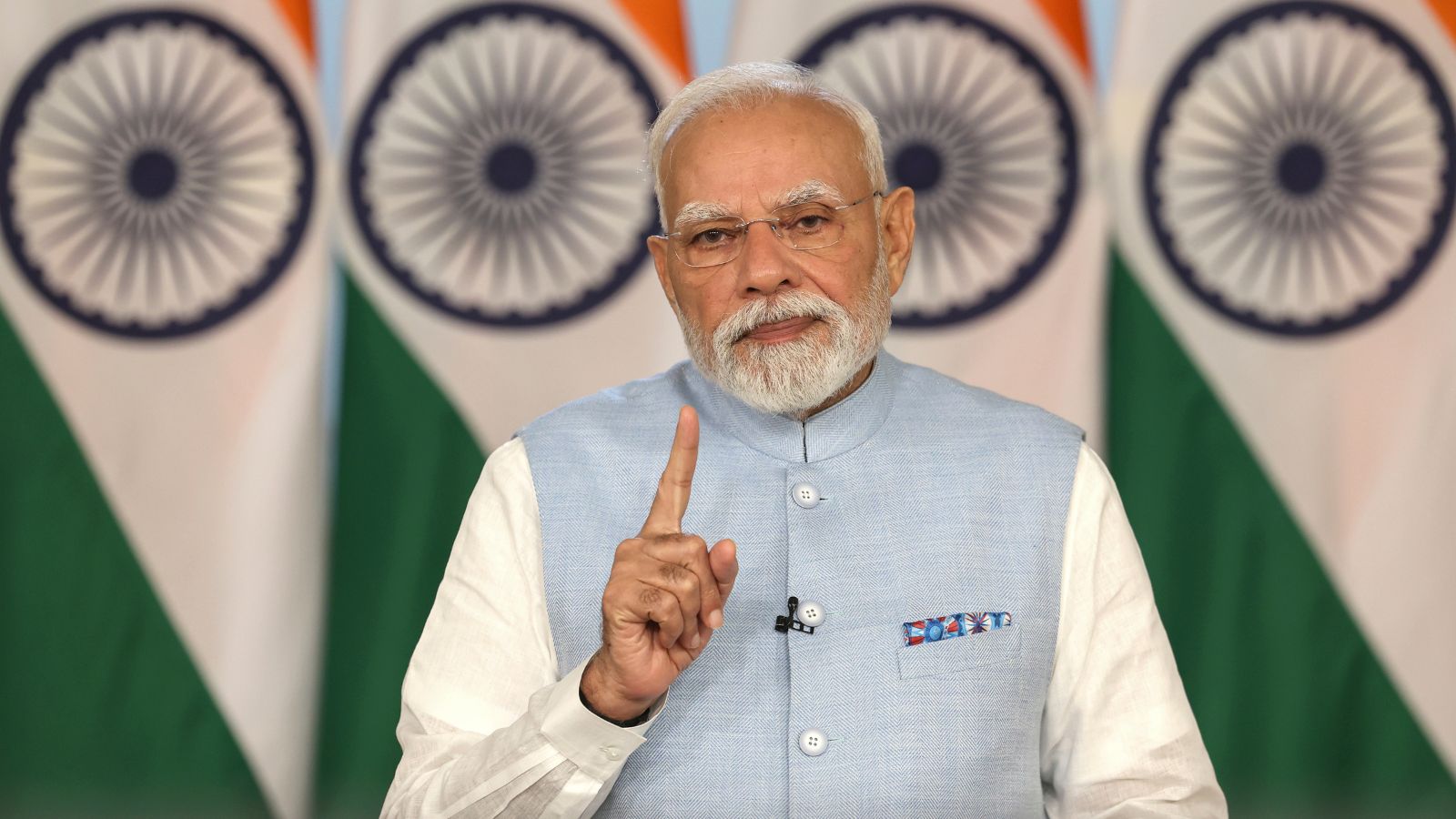Linking the rollout of the revised Goods and Services Tax structure to the start of the Navratri festival Monday, Prime Minister Narendra Modi said Sunday that the start of the “GST Bachat Utsav” (savings festival), along with the income tax relief announced earlier, will bring happiness to every family in the form of increased savings, accelerate India’s growth story, make business easier, investment more attractive, and ensure that every state becomes an equal partner in the development race.
In a 19-minute address to the nation, Modi said the second generation GST reforms was another “important and big” step in the ‘Aatmanirbhar Bharat Abhiyan’. Underlining the need for adopting the path of self-reliance, he said, “Just as the freedom (movement) of the country received strength from the mantra of Swadeshi… similarly, the prosperity of the country will also receive strength from the mantra of Swadeshi.”

He said the MSMEs (Micro, Small & Medium Enterprises) have a big role to play in India’s quest for development, for which the country will have to take the path of self-reliance. “To make India self-reliant… a very large responsibility rests on our MSMEs… What the people of the country need, which we can manufacture within the country… we should manufacture within the country. With the reduction in GST rates and the simplification of rules and procedures, our MSMEs… sales will increase, and they will also have to pay less tax. They will also receive a double benefit. Therefore, I have expectations from MSMEs,” he said.
In the last 11 years, 25 crore people in the country, he said, have defeated poverty, or overcome it, and a very large group of the 25 crore people, having emerged from poverty, is playing a very big role inside the country today as the “neo middle class”.
“This new middle class has its own aspirations and dreams. This year, the government gave a gift by making income up to Rs 12 lakh tax-free. And it is natural, when there is a relief… in income tax, what a great change comes in the life of the middle class, and how much simplicity and convenience results. And now it is the turn of the poor, it is the turn of the neo middle class. Now the poor, the neo middle class, and the middle class are getting a kind of double bonanza,” he said.
Modi said if one combines the exemption in income tax and the exemption in GST, “the decisions taken in one year will result in savings of more than two and a half lakh crore rupees for the people of the country. And that is why I am saying this is a savings festival”.
Greeting people on the eve of Navratri, he said the country is taking another important and big step for the ‘Aatmanirbhar Bharat Abhiyan’ . “Tomorrow, that is, on the first day of Navratri, September 22, the next generation GST reforms will be implemented,” he said.
Story continues below this ad
“In a way, the ‘GST Bachat Utsav’ is going to begin in the country starting tomorrow. In this GST savings festival, your savings will increase, and you will be able to buy things of your choice more easily,” he said.
“The poor, middle-class people, the new middle class, youth, farmers, women, shopkeepers, traders, and entrepreneurs of our country will all benefit.”
He said these reforms will accelerate India’s growth story, make business easier, make investment more attractive, and make every state an equal partner in the race for development.
“When India took steps towards GST reform in 2017, it marked the beginning of changing an old history and creating a new history. For decades, the people of our country, all of you, and the traders of the country were entangled in the web of different taxes,” he said.
Story continues below this ad
Earlier, if one were to send goods from one city to another, he said, countless check posts had to be crossed, many forms had to be filled, and there were so many “obstacles”.
“Tax rules were different everywhere. I remember that when the country entrusted me with the responsibility of the Prime Minister’s post in 2014, a foreign newspaper published an interesting example in that initial period. It mentioned the difficulties of a company. That company stated that if it had to send its goods from Bengaluru to Hyderabad, 570 km away, it was so difficult that they said the company would prefer to first send their goods from Bengaluru to Europe and then send the same goods from Europe to Hyderabad.”
“The increased cost incurred while goods travelled from one city to another also had to be borne by the poor; it was collected from customers like you,” he said.
He said it was the result of the efforts of the Central and state governments that the country was freed from the web of dozens of taxes, and a uniform system was established for the entire country. “The dream of One Nation, One Tax was realised… Reform is a continuous process… Therefore, keeping in mind the current needs and future dreams of the country, these new GST reforms are being implemented,” he said.
Story continues below this ad
Giving details of the new tax structure, Modi said mainly only 5 per cent and 18 per cent tax slabs will remain. “This means that most items used in daily life will become even cheaper… Out of the goods that previously had a 12% tax applied, 99% are now within the 5% tax bracket,” he said.
He also urged all state governments to accelerate manufacturing in their states, connect with full energy and enthusiasm, and create an environment for investment, in line with the campaign of Aatmanirbhar Bharat and Swadeshi.
“When the Central and state governments move forward together, the dream of Aatmanirbhar Bharat will be fulfilled,” he said.









